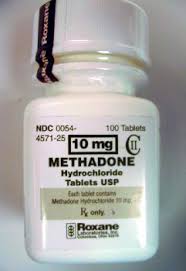What Families of an Addict should Know about Methadone Treatment
Addiction’s destructive effect in addicts’ lives eventually takes a toll on the lives of those closest to them. After a while, family members can easily give up on someone who’s gone in and out of rehab on multiple occasions. Albeit so, family may be surprised to know that the addict’s connection to them may be the only guiding force in his or her life.
Methadone treatment, a well-established opiate addiction treatment approach, is often a last resort for addicts who’ve made multiple failed attempts at recovery. Methadone treatment can help recovering addicts better cope with the uncomfortable effects of detox as well as sustain their recovery efforts on a long-term basis. Methadone maintenance treatment programs provide the type of structure and direction needed to help those in recovery live drug-free lives.
Methadone Treatment Benefits
Once the brain becomes addicted to opiate drugs, some people cannot even begin to function or feel close to normal without the effects of the drug in their system. According to Harvard Health Publications, methadone treatment helps to wean addicts off abusive opiate drugs by administering a synthetic opiate drug (methadone) under medical supervision. Since methadone’s an opiate-type drug, addicts gain relief from the persistent drug cravings and withdrawal effects that so often drive a person to relapse.
Factors Affecting Treatment Success

Methadone can help your loved one recover from addiction, but it’s best used with counseling and other treatment efforts.
While methadone offers recovering addicts needed relief from withdrawal and drug craving effects, a person’s desire to get well becomes the determining factor for success. People who’ve tried drug treatment multiple times often reach a point where they’re not only disgusted with their failures, but also with the addiction itself. Once addicts reach this point, the physical supports offered through methadone treatment may be just enough to keep them actively engaged in the recovery process.
Treatment Duration
The length of time your loved one remains in methadone treatment depends on the severity of his or her addiction. Since methadone can be used on both a short- and long-term basis, a person’s treatment needs ultimately determine the length of treatment.
In most cases, treatment duration lasts a minimum of one year and can run for as long as 10 years thereafter, if needed. Once addicts reach a point where drug cravings and withdrawal effects are no longer a problem, they can be gradually tapered off the drug.
Treatment Options
Methadone maintenance programs offer a wide range of treatment options in terms of the degree of structure and/or monitoring your family member needs. Residential programs provide a structured living environment where recovering addicts can start the process of rebuilding their lives while receiving methadone treatment. For those with family and/or work responsibilities, outpatient programs enable a person to schedule treatment sessions around their existing schedules.
Family Involvement
While the overall decision to involve family in the recovery processes rests with the client, most methadone treatment programs greatly encourage ongoing family support and involvement along the way. As much of the recovery process will require your loved one to develop a positive support network, family members can play a central role in helping him or her stay on the right course.